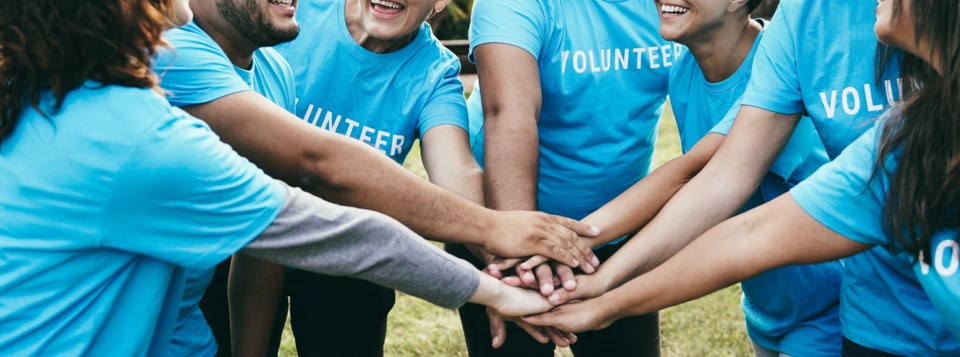Volunteering came into my life later than for many people here, but in our family and among my friends, I was rather a pioneer.
When I was a teen and in my early 20s, back in St. Petersburg, I volunteered as a kids' camp leader. Brainstorming and prep work took endless hours, and then camps saw me gone for a couple of weeks at a time, as those were overnight and out-of-town.
It was a great time with great people, which I've never regretted. But there were people around me who'd question why I would work without pay. Back then I didn't have an answer.
The organization was set up that way, which was somewhat rare, and I didn't mind, as I felt good about giving what I had to offer and being a part of those educational and creative projects, which wouldn't be possible another way.
People who've dedicated their lives to volunteering here know how much it can change, but those who are rather new may not have a clear understanding of the role local volunteers played in the formation of the region. Estevan is a city with a population of just over 10,000. But even though we are a small community, we have almost everything available right here.
Yes, we may not have every medical specialist or every piece of equipment, and we may not have the variety of big centres, but we do have all the basics and beyond. And a lot of it became possible because people volunteered their time to make it happen.
(The Estevan Motor Speedway remains one of my favourite examples when I try explaining how our small community works).
Just to compare, in Russia, communities the size of Estevan are considered village settlements or small towns depending on infrastructure. Most of them would have a few stores, mainly for groceries, a school and maybe a hospital, maybe a rural museum, but hardly any entertainment for kids and adults alike, close to zero extracurriculars, no sports facilities.
There would be nothing beyond the very basics (often outdated) at rural hospitals and schools, and not much for social support systems of any kind. Not that Russia is such a backward country, but it doesn't have a live civil society and volunteer culture. The gaps are filled by either the government or the private sector, and those two are not enough.
Small communities often have unique challenges and limited resources. Areas that are attractive for business in communities with bigger populations are vacant in smaller cities. Volunteering allows community members to identify these needs firsthand and work together to address them. Whether it's organizing local events, maintaining public spaces or providing support to vulnerable residents, volunteers play a crucial role in meeting those specific needs.
Volunteering also strengthens the social fabric of small communities by fostering connections and relationships among residents. It creates that "adult sandbox" with opportunities for new friendships, a sense of belonging and solidarity.
Besides, volunteering encourages active participation in community affairs and promotes a sense of ownership and responsibility among people. By engaging in volunteer activities, community members develop a deeper understanding of local issues and become more invested in finding solutions, which leads to more informed decision-making and a greater sense of empowerment within.
Volunteering can also have tangible economic benefits for small communities. By filling gaps in services or providing support to local businesses and organizations, volunteers contribute to the overall well-being and vitality of the community. Quite often volunteer-led initiatives attract positive attention and investment, helping to stimulate economic growth and development. (Estevan definitely has been great on this front.)
And not to forget that communities' traditions, cultural heritage and historical preservation efforts are also often on volunteers who keep the unique identity of the area cherished.
In essence, volunteering is the lifeblood of small communities, driving social, economic and cultural development from within. It empowers residents to take ownership of their community's future and fosters a sense of pride and solidarity, strengthening the bonds between people.
However, the further we are into the 21st century, the more boards, clubs and service groups find themselves short on volunteers not only in Estevan but in many other small communities that rely on that resource to grow, develop and thrive.
Lack of time, resources or awareness are often quoted as common misconceptions and barriers to volunteering. But there is a lot of good in it, and like Wendy Gustafson said, while no one ever should get to a burnout point, we all have a little bit of time we could spare.
So, if you are new to your community or the country, or just weren't exposed to volunteering much before, give it a try. And I hope we can keep going what previous generations started over here.





